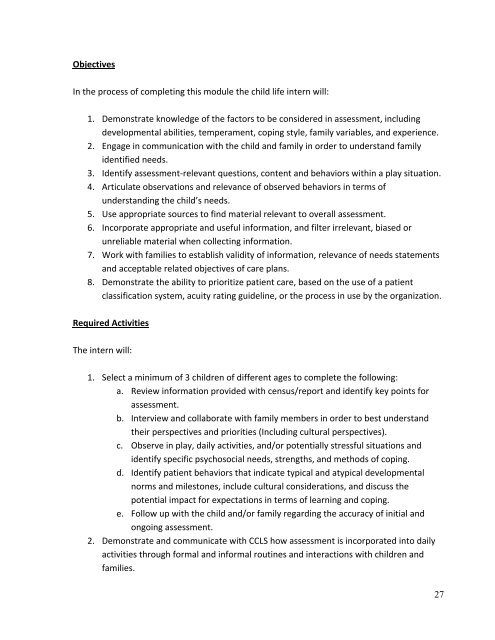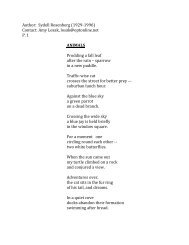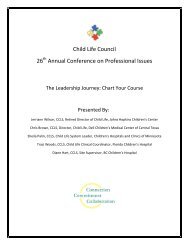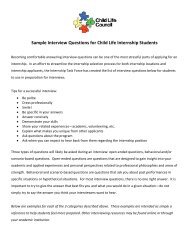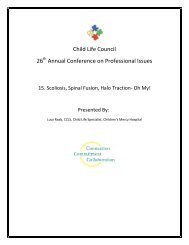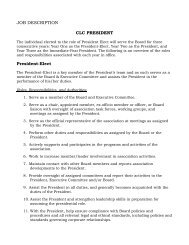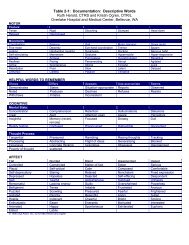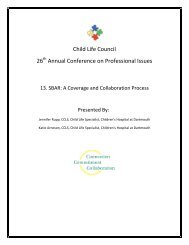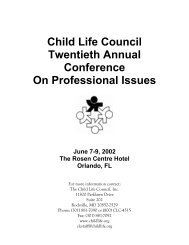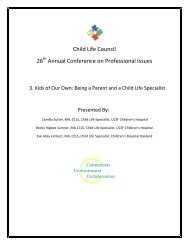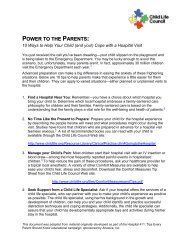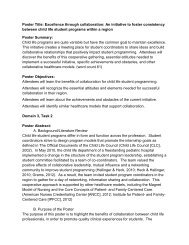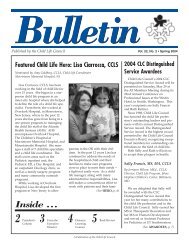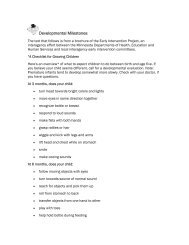Child Life Clinical Internship Curriculum - Child Life Council
Child Life Clinical Internship Curriculum - Child Life Council
Child Life Clinical Internship Curriculum - Child Life Council
You also want an ePaper? Increase the reach of your titles
YUMPU automatically turns print PDFs into web optimized ePapers that Google loves.
Objectives<br />
In the process of completing this module the child life intern will:<br />
1. Demonstrate knowledge of the factors to be considered in assessment, including<br />
developmental abilities, temperament, coping style, family variables, and experience.<br />
2. Engage in communication with the child and family in order to understand family<br />
identified needs.<br />
3. Identify assessment‐relevant questions, content and behaviors within a play situation.<br />
4. Articulate observations and relevance of observed behaviors in terms of<br />
understanding the child’s needs.<br />
5. Use appropriate sources to find material relevant to overall assessment.<br />
6. Incorporate appropriate and useful information, and filter irrelevant, biased or<br />
unreliable material when collecting information.<br />
7. Work with families to establish validity of information, relevance of needs statements<br />
and acceptable related objectives of care plans.<br />
8. Demonstrate the ability to prioritize patient care, based on the use of a patient<br />
classification system, acuity rating guideline, or the process in use by the organization.<br />
Required Activities<br />
The intern will:<br />
1. Select a minimum of 3 children of different ages to complete the following:<br />
a. Review information provided with census/report and identify key points for<br />
assessment.<br />
b. Interview and collaborate with family members in order to best understand<br />
their perspectives and priorities (Including cultural perspectives).<br />
c. Observe in play, daily activities, and/or potentially stressful situations and<br />
identify specific psychosocial needs, strengths, and methods of coping.<br />
d. Identify patient behaviors that indicate typical and atypical developmental<br />
norms and milestones, include cultural considerations, and discuss the<br />
potential impact for expectations in terms of learning and coping.<br />
e. Follow up with the child and/or family regarding the accuracy of initial and<br />
ongoing assessment.<br />
2. Demonstrate and communicate with CCLS how assessment is incorporated into daily<br />
activities through formal and informal routines and interactions with children and<br />
families.<br />
27


